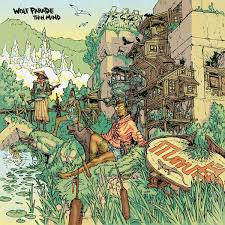Made this week during high anxiety. Much love to all my American friends, who fight the good fights every day.
Spotify playlist is here. All YouTube links below. Mix, match, borrow, make your own. Music heals.
1. Curtis Mayfield – "If There's a Hell Below We're All Gonna Go." Among the many things I love in these lyrics ("educated fools from uneducated schools") is the fact that he delineated between "whiteys" and "crackers."
2. Angelique Kidjo – "Born Under Punches." From her amazing reimagining of Talking Heads' Remain in Light. "All I want is to breathe."
3. Arcade Fire & Mavis Staples – "I Give You Power." Recorded during the 2016 election.
4. Peaches – "Flip This." Released this summer. Kick a column, make it crumble.
5. The Comet is Coming – "Summon the Fire." No lyrics required.
6. Weaves – "#53." Hope to have the chorus of this song in my head in January 2021. Buy here.
7. Steven Page – "White Noise." Written after Charlottesville. "As an immigrant and a Jew, I'd be more than glad to replace you."
8. International Noise Conspiracy – "Smash It Up." Metaphors only, please.
9. Bodega – "How Did This Happen?" How indeed. (Buy here)
10. Queen – "Another One Bites the Dust." Looking forward to watching the Senate races.
11. Leonard Cohen – "Everybody Knows." The boat is sinking. The captain lied.
12. Amiri Baraka – "Who Will Survive America?"
13. Gil Scott-Heron – "Whitey on the Moon." For Elon Musk and those who want to market moon water.
14. Geoff Berner – "Why Don't We Take the Billionaires' Money Away?" Entirely valid question, should not be considered radical. Buy here and don't give your money to billionaires.
15. Bruce Cockburn – "The Trouble With Normal." Had this song in my head ever since the election of Rob Ford.
16. Buddy & Julie Miller, the McCrary Sisters, Steve Earle – "Let It Rain." Released in the spring of 2020 at the height of the BLM protests. Worldwide pandemic won't slow us down. Thank you, Nashville.
17. Sarah Harmer – "New Low." Every day. Buy here.
18. Arcade Fire – "Intervention." I can taste your fear. Who's going to reset the bone?
19. Handsome Furs – "What About Us." An army of thieves, lies and deceit so hard to believe. Read Sarah Kendzior's Hiding in Plain Sight.
20. EMA – "Aryan Nation." Tell me stories of famous men, I can't see myself in them. Buy here.
21. Brad Mehldau – "The Prophet is a Fool." The emperor's new clothes.
22. Damon Locks & Black Monument Ensemble – "Rebuild a Nation." From an album of beautiful, choral uplift, released in 2019. Buy here.
23. Handsome Boy Modeling School, Roisin – "The Truth." You can't hide.
24. Stars – "No One is Lost." Put your hands up if you ever feel afraid. Buy here.
25. U.S. Girls, Alex Frankel – "Overtime"
26. Melt Yourself Down – "Every Single Day"
27. James Brown – "Funky President (People It's Bad)" Stock market going up, jobs going down.
28. Sharon Jones & the Dap-Kings – "People Don't Get What They Deserve." Buy here.
29. Tune-Yards – "Bizness." Don't take my life away.
30. A Tribe Called Quest – "We the People." Simple voodoo, so maniacal.
31. Beastie Boys – "So Whatcha Want." Where'd you get your information, huh? You think you can front when Revelation comes? I think I'm losing my mind this time.
32. Ministry – "Thieves." Tear this MFer down.
33. Spoon – "Shotgun."
34. Le Tigre – "Keep on Livin'." Don't let them bring you down and don't let them fuck you around.
35. Thompson Twins – "Lies." They won't forget ya.
36. Jimmy Cliff – "The Harder They Come." The harder they fall.
37. Janelle Monae – "Turntables." Got a new agenda, got a new dream, I'm kicking out the old regime.
38. Max Romeo – "War Inna Babylon"
39. The National – "Fake Empire."
40. Karen O & Willie Nelson – "Under Pressure." One of the greatest goddam covers I've ever heard in my life. More on this later.
41. John Lennon – "Starting Over." Because despite my despair, I'm an optimist.









